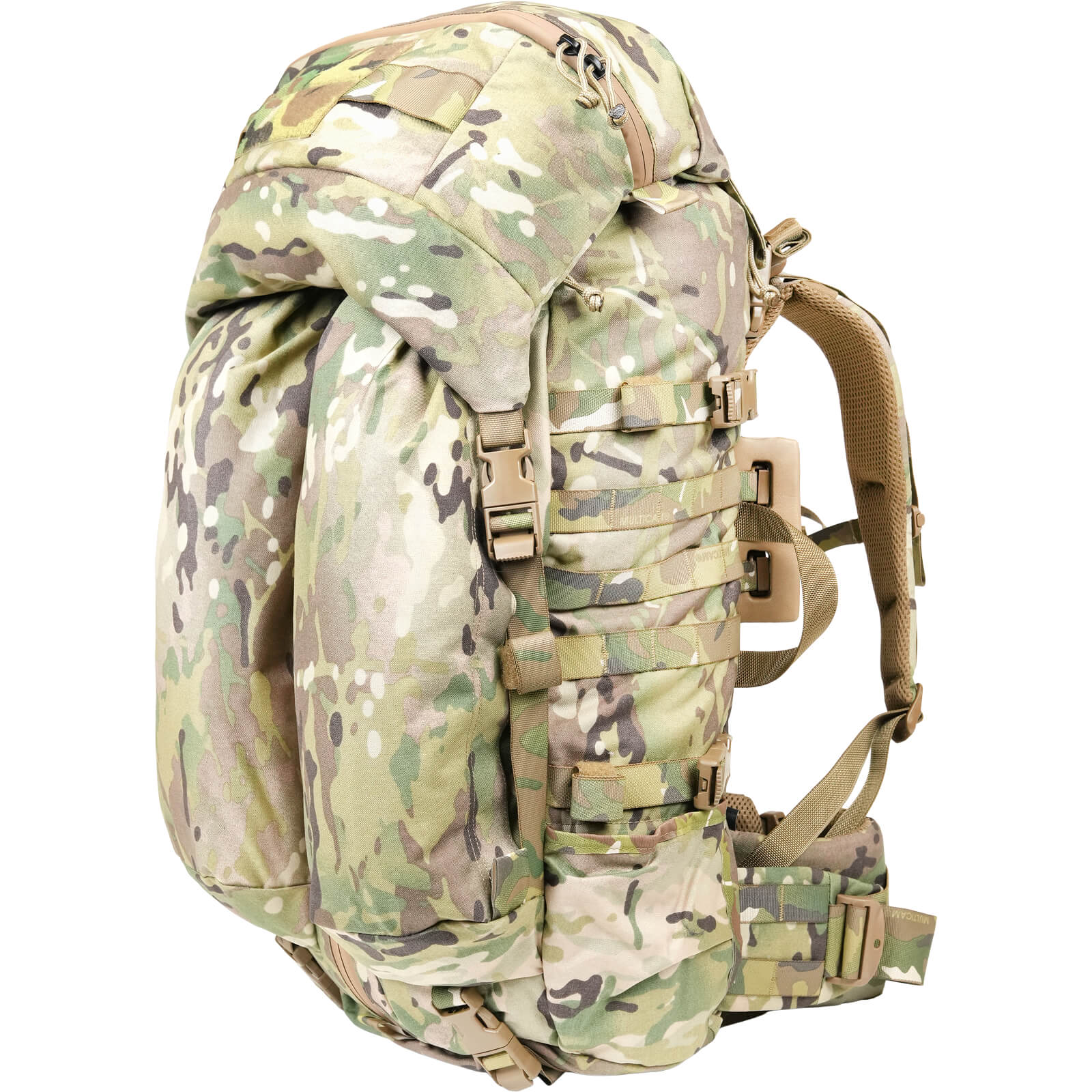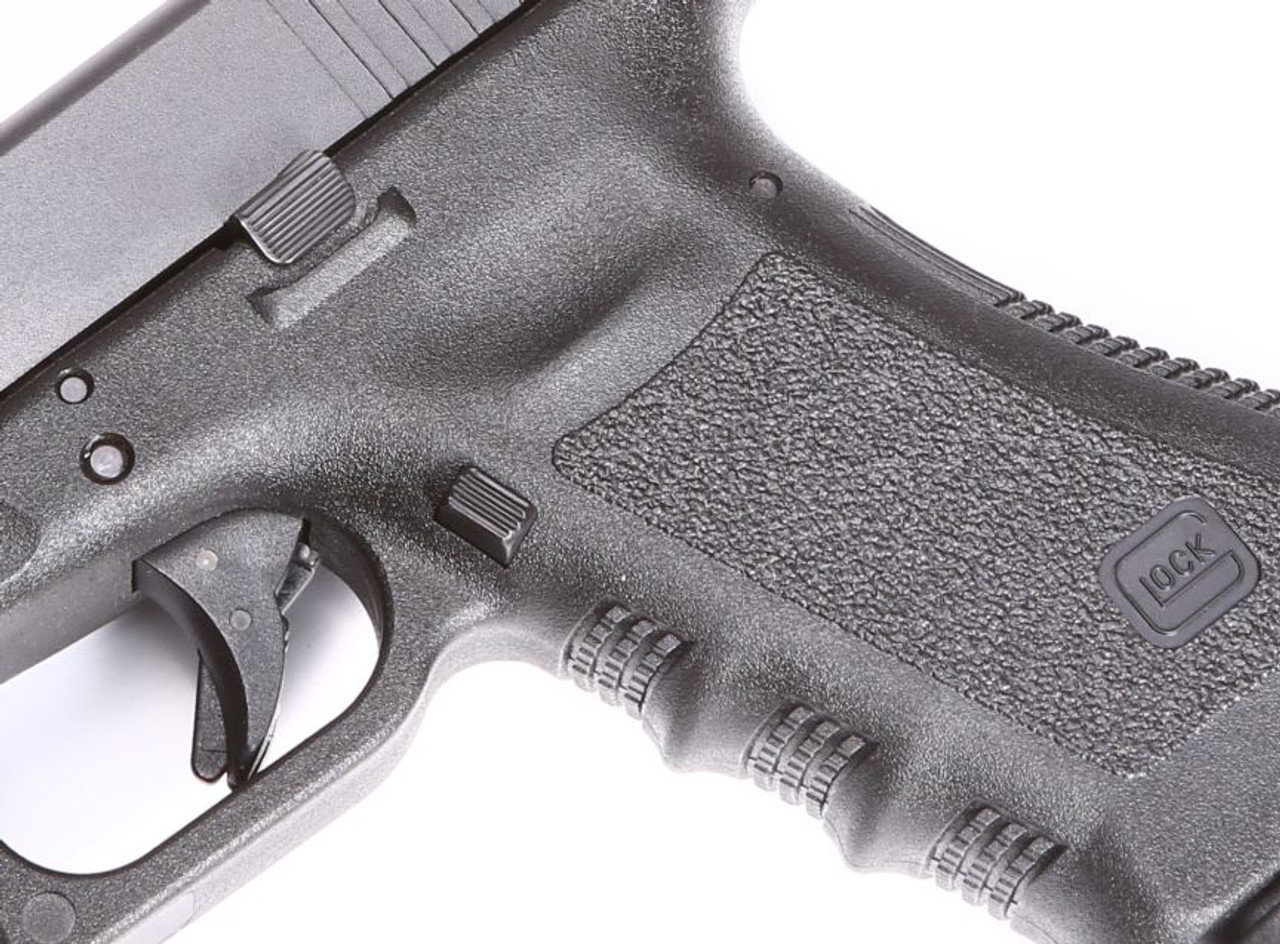Air Assault Ruck Weight - Sgt. Samantha L. Merryfield, left, 328th Military Police Company; Sgt. Karlee S. Severns, center, and Pfc. Matthew D. Maher, both of the Medical Department, listen to a safety briefing before the 12-mile march – the final event of the New Jersey Army National Guard's Warrior of the Year competition at Joint Base McGuire-Dix-Lakehurst, N.J., April 11, 2019. (National New Jersey Guard photo: Mark C. Olsen).
Throughout the military, from Ranger School to Air Assault, basic training, and countless other events, the 12-mile ruck march is everywhere. I've done a lot of 12 milers and none of them have been particularly enjoyable. A normal military weight of 35 pounds without water is heavy enough to be cumbersome after three hours. Add 15-20 kilos of water and the load becomes painful. When I went to Ranger School, I was worried about the 12 mile march after being on my feet all week. The backpack alone weighed 35-40 pounds and I was carrying 9 liters (about 19 pounds) of water. At about mile 8 I felt someone catch up to my left. Looking back, I saw something that my tired brain didn't immediately perceive; someone had a backpack loaded in front or chest, arms wrapped around them in a big bear hug. As they got closer I asked what was going on.
Air Assault Ruck Weight

"My straps broke at four miles," he said, "and I didn't want to waste time fixing them." That's what I heard before he passed me.
Air Assault Guide
I think about that woman every now and then. I never saw him again, but it was impressive that he completed that rye march at all, and humiliating that he did it faster than I did. I know he had to work a lot harder to get the same result. And while the military bills itself as a meritocracy where results correlate with effort, I think this one woman's experience would resonate in places far beyond Fort Benning, Georgia. The military often places an undue burden on women and then acts surprised when its policies disproportionately affect them. Each of these institutional slights adds weight to the minds of women in our armed forces that their male counterparts do not have to carry.
For example, in Europe, one of the few American maternity hospitals is located at the Landstuhl Regional Medical Center in West Germany. I was about four hours away, and many other soldiers are much further away. If a soldier or family member has to go to the maternity ward, they can either take the day off work and spend $100 on gas or see a German doctor. Obviously, someone may prefer to choose a doctor who speaks their language for a personal medical visit. For patients with an emergency or even a routine exam, the military gives them two bad options and forces them to choose. The weight of women facing this decision may not seem like much, but it adds to the weight they carry every day. This standard 35 kg backpack can now weigh 38 kg.
There are many other military policies that add further weight to this metaphorical backpack. Another example: single mothers are essentially forced out of the military if they are stationed in Europe because they are rarely able to name a guardian for their child if they are deployed. Currently, having a child alone is not grounds for compassionate transfer to another duty station where a soldier may rely on their parents or other family members to care for their child and is therefore forced to leave. A man who has had a child is not faced with the same situation. 38 kilos is now 40.
Staff Sgt. Amanda F. Kelley, assigned to the 1st Armored Division's Air Combat Brigade at Fort Bliss, Texas, right, stands in formation for parade rest after graduating from Ranger School at Fort Benning, Ga., Aug. 31, 2018. Kelley is the first female enlisted to receive her Ranger card. (U.S. Army photo by Patrick A. Albright, Fort Benning Maneuver Center Photographer of Excellence)
Rakkasan Soldier Breaks 12 Mile Air Assault Foot March Record
These are just two situations that are common in the military and disproportionately affect women, but the culture maintained by male soldiers can be truly heartbreaking. Many soldiers may not realize how damaging a daily diet of microaggressions can be; I know a lot of guys I've talked to, I really don't. But when a friend of mine was asked at a meeting if "curtains go with the curtains" she got the burden she never asked. The same applies to the woman whose report of sexual harassment was brushed under the carpet by the battalion commander. The same goes for the one who didn't get into the ladies' room for months, or the one who was asked out on a date at their last meeting with their commanding officer, or the one who was told her skirt was unprofessional at her promotion committee. And I don't even have to mention the female officers who insist on civilian clothes in a place that doesn't pull, the female soldiers who don't feel safe in the barracks, the non-commissioned officers whose authority is not respected. Service members accused of being pregnant or called "aggressive" in meetings. 40 kilos. 42 kilos. 44 kilos. 46 kilos.
Or a woman abused by her S3. 48 kilos. Women who follow their attackers go free. 50 pounds. A woman who died in her unit's armory. The burden gets heavier.
Seen in this light, many supposed successes are far less justified. If someone completed 12 miles at Ranger School with a 15 pound ruck they would be kicked off the course, but men can be promoted to ever higher levels with far less stuff than their female counterparts. If a person has a figurative advantage of £15 or £20 every time they compete for an opportunity, the system looks less like a meritocracy and more like exploitation. So, men, we must ask ourselves, what benefits have we received that others have not? What do we enjoy at someone else's expense? Is the military really a meritocracy and are we really deserving, or are we just given the freedom to work towards our goals without misogyny, prejudice and, at worst, the specter of violence?

To its credit, the military slowly began to realize its responsibility to balance this burden. Secretary Austin established an independent review board to investigate the military's culture of sexual violence and sexism, and Congress just reached an agreement to move sexual violence cases outside the military command. The military has recently changed its regulations on the look and wear of military uniforms, allowing women more flexibility in hairstyles, the ability to wear earrings and (modestly) paint their nails while in uniform. Reports have revealed that some female soldiers have to spend up to ten times more on uniforms than male soldiers, something women have long understood but most men have never even considered. Army Sergeant Grinston, a senior military leader, is now turning to social media to end sexism. Following Tucker Carlson's announcement, military leaders even provided support for pregnant soldiers.
Things No One Wants To Remember About Ruck Marches
However, the military still has a lot of work to do to make things fairer and more just for all its members. For example, Lip claiming to support pregnant women makes no sense when pregnant women still face discriminatory policies. Committees and studies are important but ultimately useless unless they provide meaningful and timely policy change. Men who make or ignore sexist comments contribute to a culture that demands more of women than men. And as long as parts of the armed forces are overstretched and neglected, the military will never be the meritocracy that Americans need.
Second degree assault washington state, 2nd degree assault sentence, 2nd degree aggravated assault, 2nd degree assault mn, 2nd degree assault, 2nd degree assault definition, 3rd degree assault washington state, 4th degree assault washington state, 2nd degree felony assault, 4th degree assault washington, what is assault 2nd degree, 2nd degree assault charges

